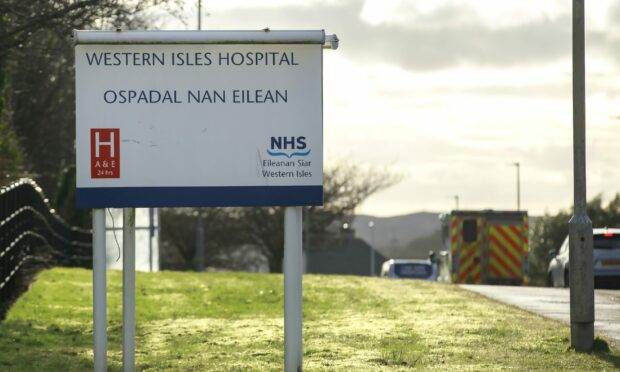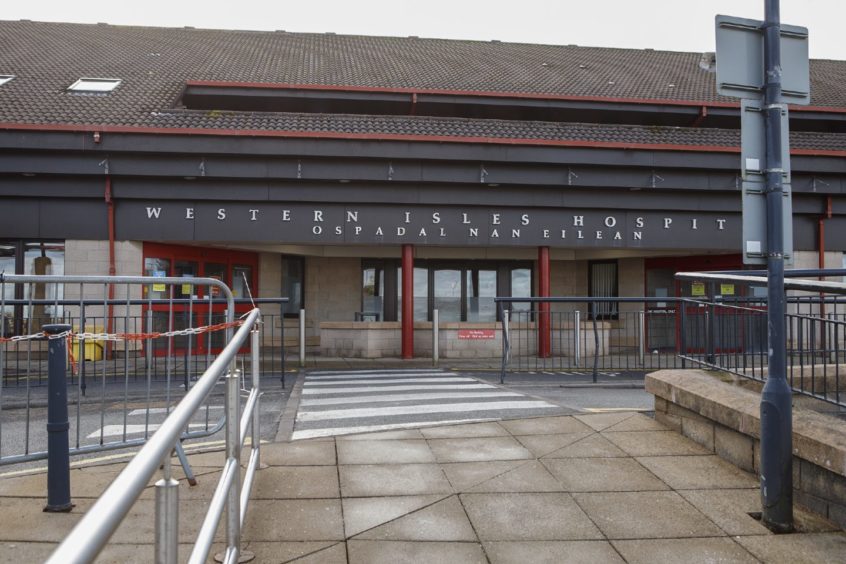All surgery at the Western Isles Hospital in Lewis has been cancelled due to Covid.
Due to an outbreak of coronavirus on the surgical ward, it has been closed. All-but-essential visiting to other wards has been cancelled.
Patients who were due to have surgical procedures will be contacted by the hospital.
A spokesman for NHS Western Isles said: “The surgical ward in Western Isles Hospital in Stornoway has been closed to new non-emergency admissions until further notice, as a number of positive cases of Covid-19 have been linked to the ward.
Medical ward two remains closed
“Regrettably the current situation will have an impact on arranged surgical procedures. Any patients affected will be contacted directly.
“Medical ward two also remains closed to new admissions, following the identification of cases of Covid-19 linked to the ward last week.
He continued: “As a result of now more than one outbreak of Covid-19 cases within the hospital, NHS Western Isles has taken the difficult decision to temporarily restrict visiting across the hospital to essential visiting only.
“This will be reviewed in 48 hours. An incident management team meets on a regular basis to ensure all necessary measures are in place to prevent further spread of the virus within the hospital.
Visiting restrictions implemented in Western Isles Hospital and Surgical Ward closed to admissions until further notice https://t.co/gofonMd5aB
— NHS Western Isles (@NHSWI) July 17, 2022
“We would like to apologise for the disappointment and inconvenience this may cause, however it is considered necessary in the circumstances to protect vulnerable patients in hospital and to protect the ongoing provision of services.”
All essential visitors must book visits in advance. Prior to their visit they must take a lateral flow device (LFD) test before visiting hospital.
LFDs can be ordered by calling 119 or visiting https://www.gov.uk/order-coronavirus-rapid-lateral-flow-tests
What is an essential visitor?
Essential visiting describes situations when it is very important for a relative/friend to be allowed to see a patient.
Examples of this include:
- a parent accompanying a child
- in maternity settings, partners or birth partners being able to attend ante-natal, clinic or scan appointments with their partner
- when someone has reached the end of their life, has an immediately life-threatening illness, when someone is receiving difficult news, or similar situations
- when people have an acute mental health issue
- anyone with dementia, autism or learning disabilities


Conversation